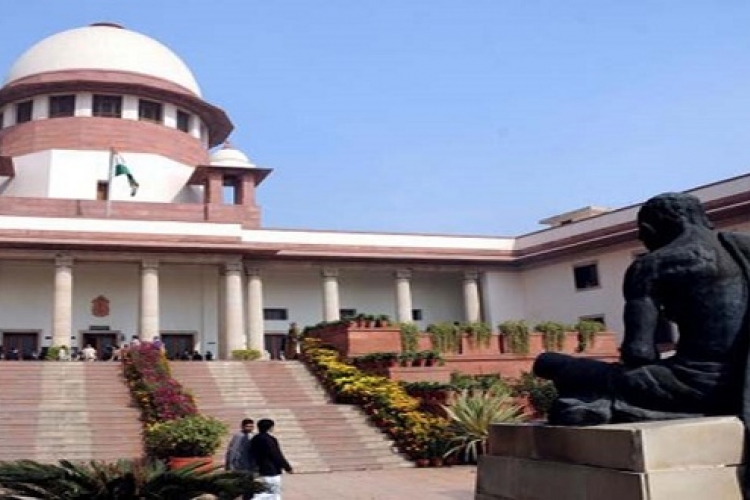Transparency arguments in Judiciary
The issue of transparency has been a sticking point for the highest judiciary, especially with respect to the appointment of judges and administration of justice.
What happened?
There was a petition following an RTI questioning if CJI’s office is amenable to Right to Information Act (RTI) and bound to disclose information as sought under the law by an applicant?
The apex court responded to the plea saying, “In The Name Of Transparency, We Can’t Destroy Judiciary”. The bench concluded by saying that it is best that the reasons behind non-elevation or non-appointment to be disclosed in the public domain after the consent of the concerned person. The bench also quoted “personal information” tag, ie; what if the person who got rejected by the collegium didn’t want to reveal that information? As RTI disables an individual’s personal information from being disclosed.
Can there be different standards for transparency across different arms of the state? The usual argument is that transparency will undermine judicial independence but then again the public has the right to know as much as possible, without trespassing on privacy, about those who are in a position to determine their fates. The notion that negative information about certain judges may be an impediment to their progress is misguided.
So should the highest judiciary be blocking information in the name of judicial independence? The judicial opacity cleared up slightly in recent times with the decisions of the supreme collegium on appointments being put out on the SC website. But only seven of the 27 SC judges have put out their assets on the website, the proportion being less in high courts.
The apex court responded to the plea saying, “In The Name Of Transparency, We Can’t Destroy Judiciary”.
Judicial Independence
Article 124 provides judicial independence through the Doctrine of separation of powers. As well as, the Supreme Court and the High courts have their independent registries, where appointments are made by or at the direction of Chief Justices (Article 146 and Article 229 respectively), ensuring total freedom from political interference and political domination.
What does RTI say about this?
RTI act clearly mentions “public authority” comes under the ambit of RTI and “public interest” outweighs if a question is raised on revealing information of a public authority or office.
"a public authority may allow access to information if public interest in disclosure outweighs the harm to the protected interests."
It is to be noted that there are exemptions, however, even information regarding a concerned person holding or about to hold public office is not disclosed to applicants even when the public interest clearly outweighs private interest. And it is to be remembered that Judicial Accountability Act was scrapped to prevent interference of the executive body in the court’s judgement but that does not mean that the judiciary is free from “public scrutiny”.
Analysis and Opinion
All democracies are swiftly moving toward an open government and a citizen’s right to know — an international trend increasingly being supported by judicial decisions.Further, the right to know is part of the freedom of speech and expression and the present secretive system, as implemented by the collegium, violates this fundamental right.
Publicity, the soul of justice
The principle of open justice and public trial is essential for the fair administration of justice. In the celebrated case of Scott v. Scott, observations by the 19th-century philosopher,
Jeremy Bentham was quoted:
"In the darkness of secrecy, sinister interest and evil in every shape have full swing. Only in proportion as publicity has a place can any of the checks applicable to judicial injustice operate. Where there is no publicity there is no justice. Publicity is the very soul of justice. It is the keenest spur to exertion and surest of all guards against improbity. It keeps the judge himself while trying under trial.” and “The security of securities is publicity."
The present secretive process followed by the collegium excludes public scrutiny, violates the citizen’s right to know and leads to diminishing respect for the judiciary.
The observations in the First Judges Case ( S.P. Gupta vs. Union Of India), which have not been overruled at this point, support the concept of openness, observed: “The citizens’ right to know the facts, the true facts, about the administration of the country is thus one of the pillars of a democratic State. And that is why the demand for openness in the government is increasingly growing in different parts of the world.”
Those under a cloud should not be cleared to move into higher positions. The judiciary must be beyond reproach. This is something the judiciary itself must reflect and act on rather than be pushed on the matter by lawmakers and civil society. Surely, a judiciary which considers the rule of law a part of its basic structure must abandon the culture of secrecy that envelops the present appointment process.


 IAS-2026 - OPTIONAL / GEOGRAPHY / PUBLIC ADMINISTRATION / SOCIOLOGY / ANTHROPOLOGY / ORIENTATION ON 03 & 04-10-2025
IAS-2026 - OPTIONAL / GEOGRAPHY / PUBLIC ADMINISTRATION / SOCIOLOGY / ANTHROPOLOGY / ORIENTATION ON 03 & 04-10-2025 